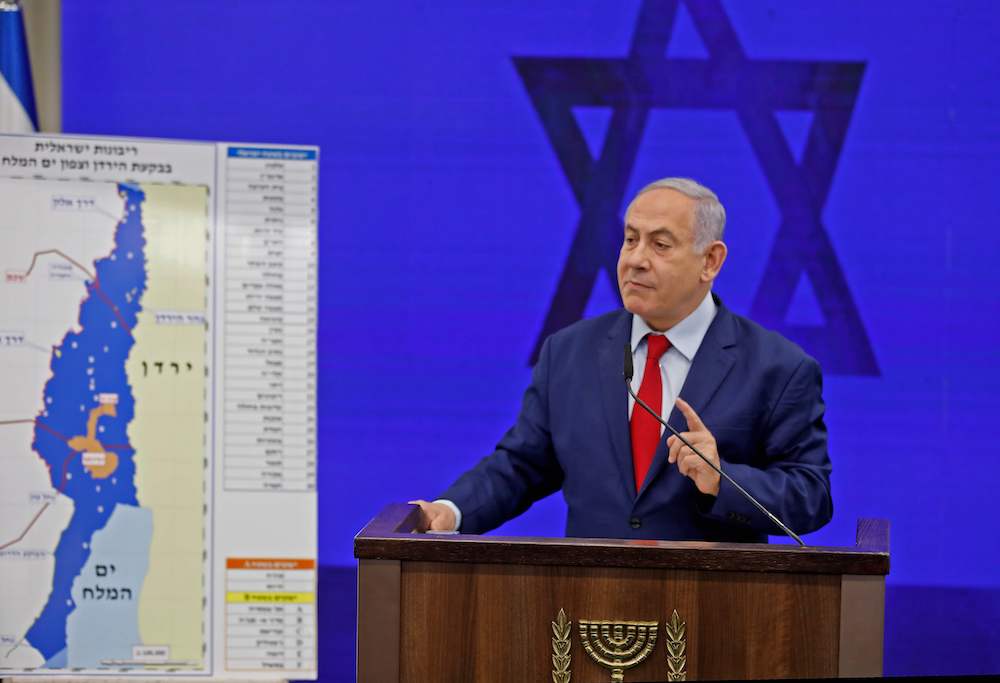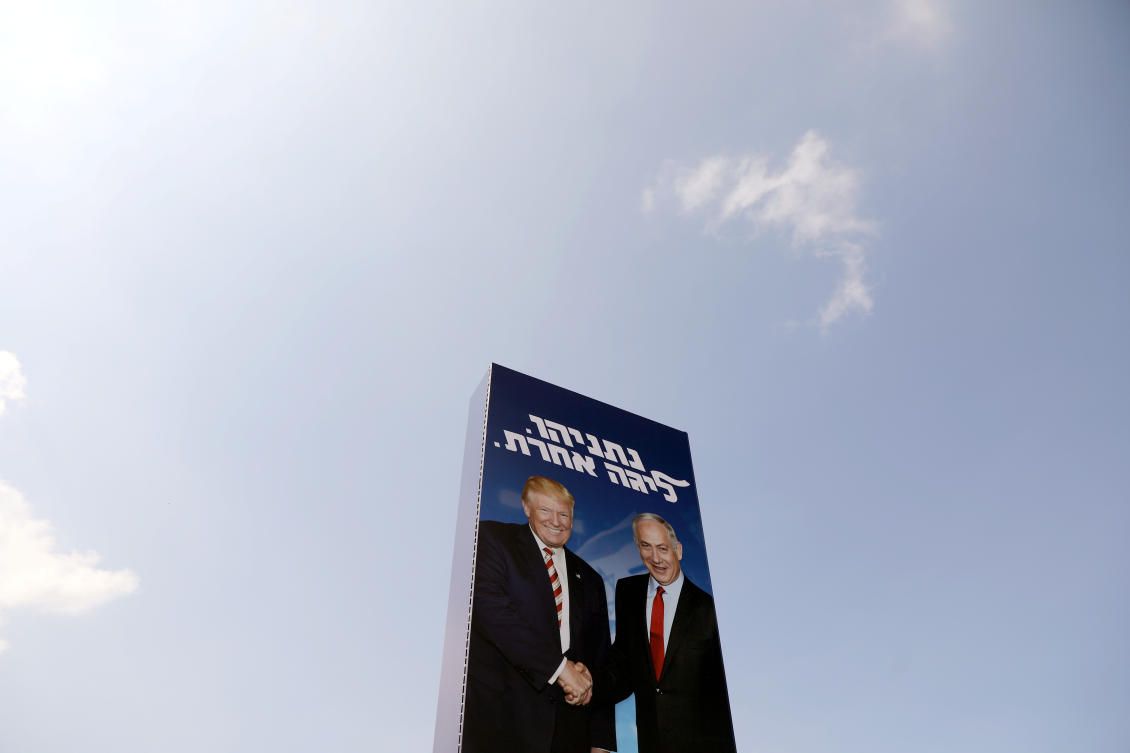Israeli PM Netanyahu sparks anger with vow to annex Jordan Valley
JERUSALEM: The United Nations on Tuesday warned Israeli Prime Minister Benjamin Netanyahu that his plan to annex the Jordan Valley in the occupied West Bank if re-elected would have no “international legal effect.”
Netanyahu issued the deeply controversial pledge as he gears up for September 17 elections. He also said Israel would move to annex Israeli settlements throughout the West Bank.
Such moves could effectively kill any remaining hopes for a two-state solution to the Israeli-Palestinian conflict, long the focus of international diplomacy.
“The secretary-general’s position has always been clear: unilateral actions are not helpful in the peace process,” UN spokesman Stephane Dujarric said.
“Any Israeli decision to impose its laws, jurisdictions and administration in the occupied West Bank is without any international legal effect,” the spokesman added.
“Such a prospect would be devastating to the potential of reviving negotiations, regional peace, and the very essence of a two-state solution.”
“There is one place where we can apply Israeli sovereignty immediately after the elections,” Netanyahu said in a televised speech.
“If I receive from you, citizens of Israel, a clear mandate to do so … today I announce my intention to apply with the formation of the next government Israeli sovereignty over the Jordan Valley and northern Dead Sea.”
Following the announcement, a US official said Washington’s policy toward Israel and the Palestinian territories remains unchanged.
“There is no change in United States policy at this time,” a Trump administration official said when asked whether the White House supported Netanyahu’s move.
“We will release our Vision for Peace after the Israeli election and work to determine the best path forward to bring long sought security, opportunity and stability to the region.”
The Jordan Valley accounts for around one-third of the West Bank, which Israel occupied in the 1967 Six-Day War — a move never recognized by the international community.
The prime minister also reiterated his intention to annex Israeli settlements throughout the West Bank if re-elected, though in coordination with US President Donald Trump, whose long-awaited peace plan is expected to be unveiled sometime after the vote.
Those moves could effectively kill any remaining hopes for a two-state solution to the Israeli-Palestinian conflict, long the focus of international diplomacy.
Senior Palestinian official Hanan Ashrawi said Netanyahu was “not only destroying the two-state solution, he is destroying all chances of peace.”
“This is a total game changer,” she told AFP.
The Jordan Valley accounts for around one-third of the West Bank and Israeli right-wing politicians have long viewed the strategic area as a part of the territory they would never retreat from.
Israeli settlements are located in what is known as Area C of the West Bank, which accounts for some 60 percent of the territory, including the vast majority of the Jordan Valley.
Netanyahu said his annexation plans would not include Palestinian cities, such as the Jordan Valley’s Jericho.
Netanyahu, who used a map of the Jordan Valley to illustrate his plans, said Trump’s peace parameters “will place before us a great challenge and also a great opportunity.”
“This is a historic, one-time opportunity to apply Israeli sovereignty on our settlements… and other places of importance to our security, our heritage and our future.”
Trump has thrown US support overwhelmingly in favor of Israel since taking office, including by recognizing Jerusalem as Israel’s capital and cutting hundreds of millions of dollars in aid to the Palestinians.
Ahead of April elections, Trump recognized Israeli sovereignty over the occupied Golan Heights, seized from Syria in the 1967 Six-Day War.
It is unclear if Trump, who made clear before April’s vote that he would like to see Netanyahu win, will follow up with any further expressions of support before next week’s election.
Netanyahu along with his right-wing and religious allies won a majority of seats in April polls, but he failed to form a coalition and opted for an unprecedented second election in five months.
He is again facing a difficult challenge from ex-military chief Benny Gantz and his centrist Blue and White alliance.
Right-wing nationalist votes will be key to Netanyahu’s efforts to continue his reign as Israel’s longest-serving prime minister.
He is also facing a potential indictment for corruption pending a hearing scheduled for early October.
Israel occupied the West Bank in the 1967 Six-Day War in a move never recognized by the international community.
Its settlements there are considered illegal under international law and major stumbling blocks to peace as they are built on land the Palestinian see as part of their future state.
Israel says the Jordan Valley is vital to its security.
(With AFP and Reuters)

Jordan summons Israeli ambassador after citizens detainedIsraeli PM’s bid to place cameras at polling stations fails




